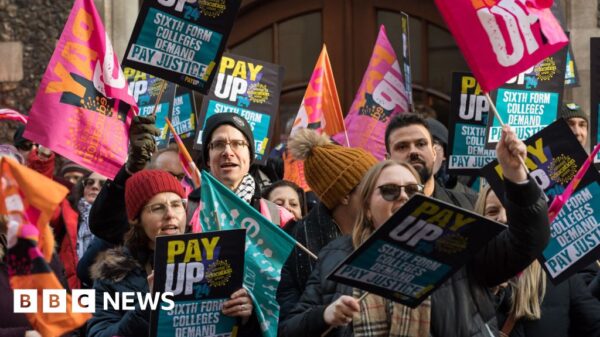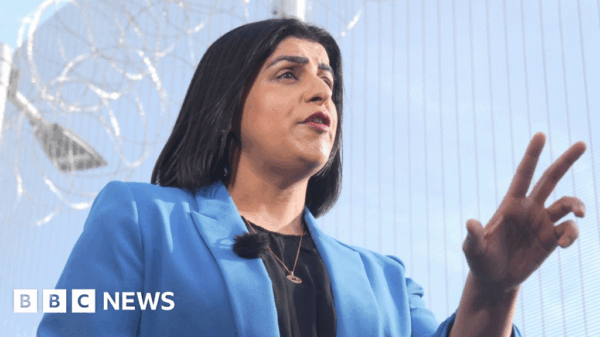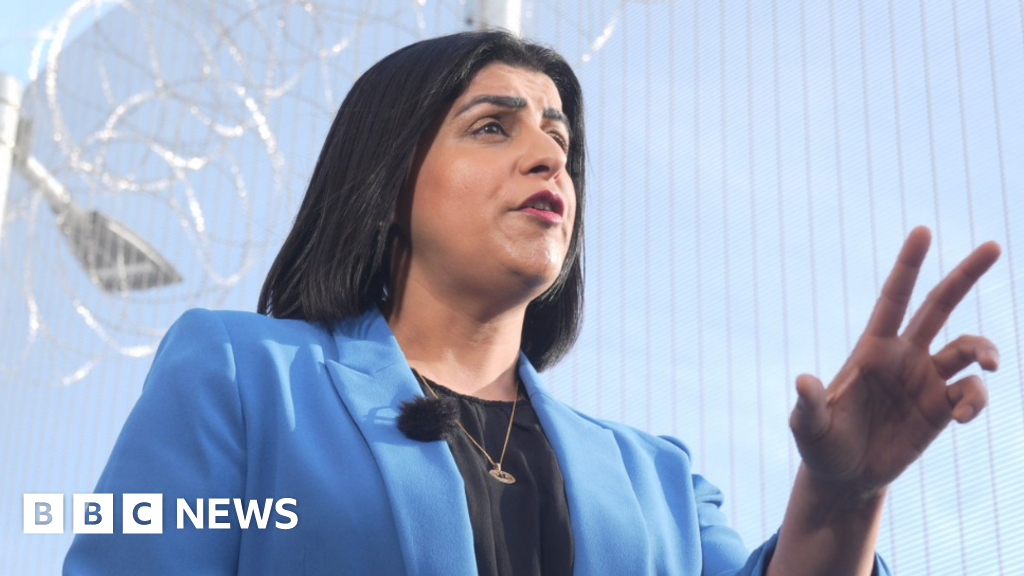Sentencing reforms aimed at easing prison overcrowding have been mostly accepted by the government, the justice secretary has said, although she has rejected allowing early releases for the most serious offenders.
The government commissioned an Independent Sentencing Review by former Conservative Lord Chancellor David Gauke, who concluded major reforms were needed to “end the dangerous cycle of emergency releases”.
Justice Secretary Shabana Mahmood told the Commons she will proceed with most of Gauke’s recommendations, including earlier release for some offenders.
Shadow justice secretary Robert Jenrick labelled the plans as a “get out of jail free card for dangerous criminals”.
The government also confirmed it would expand a pilot scheme offering chemical castration to some prisoners, with a view to making it nationwide and potentially mandatory.
Gauke’s early release recommendations relate to the “earned progression model” for offenders, inspired by reforms to high-security, supermax prisons in the US state of Texas, which the BBC visited with Mahmood in February.
The model sees offenders progressing through three stages, with good behaviour rewarded by early release after completing a third of their sentence. If not, prisoners stay in jail until they have served 50%.
There are concerns some of these prisoners on standard determinate sentences could include sex offenders and perpetrators of domestic abuse.
But Mahmood ruled out allowing early releases for the most serious offenders – those incarcerated for serious violent or sexual offences on extended determinate sentences – saying these prisoners will continue to have to serve at least two-thirds of their sentence. She also added that nobody jailed for terror offences would be eligible.
She said: “Judges give extended sentences to those they consider dangerous with no parole board hearing until two-thirds of time served and I will not change that.”
Mahmood also confirmed the expansion of a small pilot scheme offering voluntary chemical castration to some sex offenders to 20 prisons after the report said that trial should continue.
She told MPs the government “will go further” and is exploring whether to enforce chemical castration as mandatory.
Jenrick condemned the plans as a “recipe for carnage” and accused the government as being “okay with criminals terrorising our streets and tormenting our country”.
Responding, Mahmood said: “If the government he was a part of had ever been serious, they would have built more than 500 prison places in 14 years in office.”
Last year, thousands of inmates were released early in an emergency measure to deal with prison overcrowding.
Eligible prisoners serving more than five years were automatically released after serving only 40% of their fixed-term sentence, rather than the usual 50%.
The government then commissioned the review to look into the causes of the crisis, and to consider alternative punishments to custodial sentences.


































